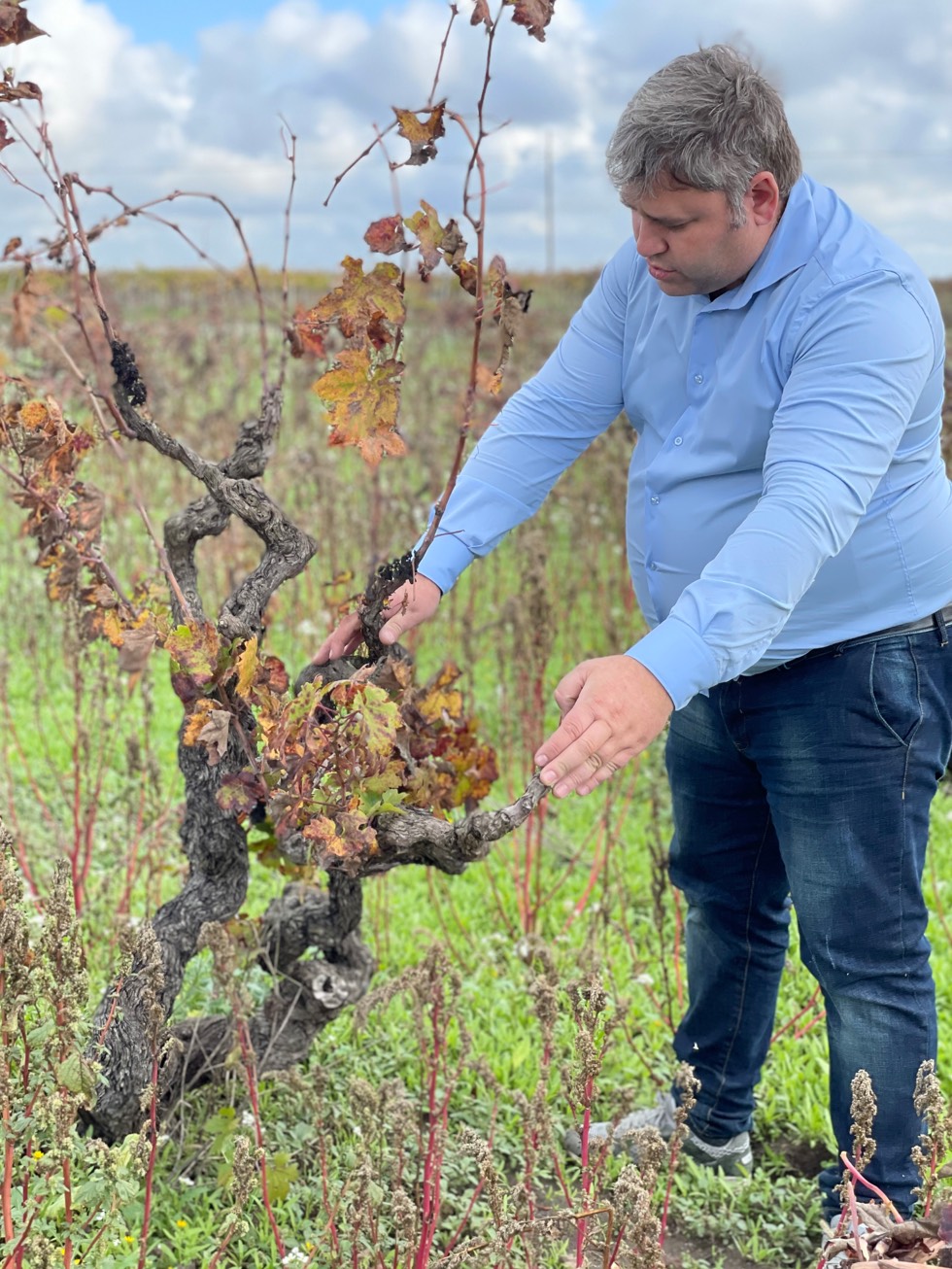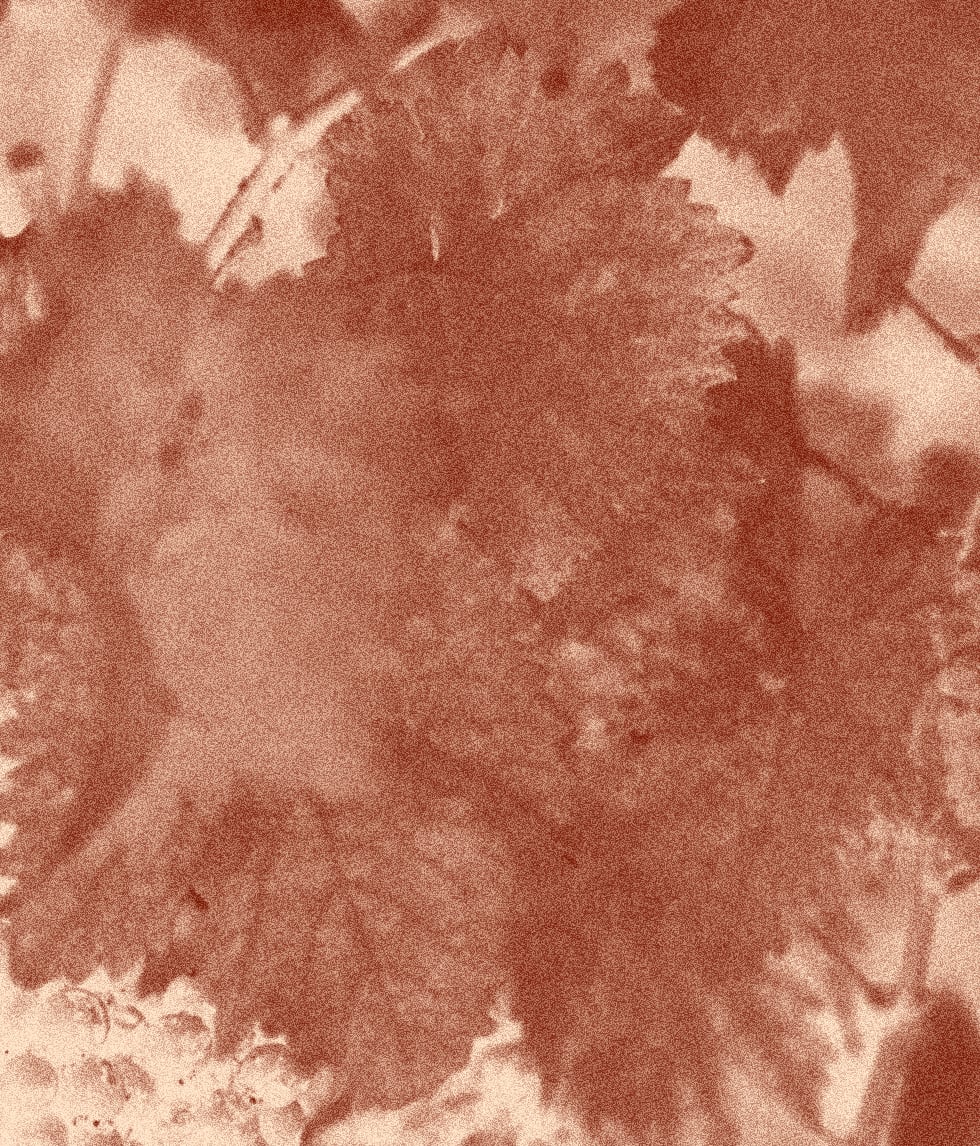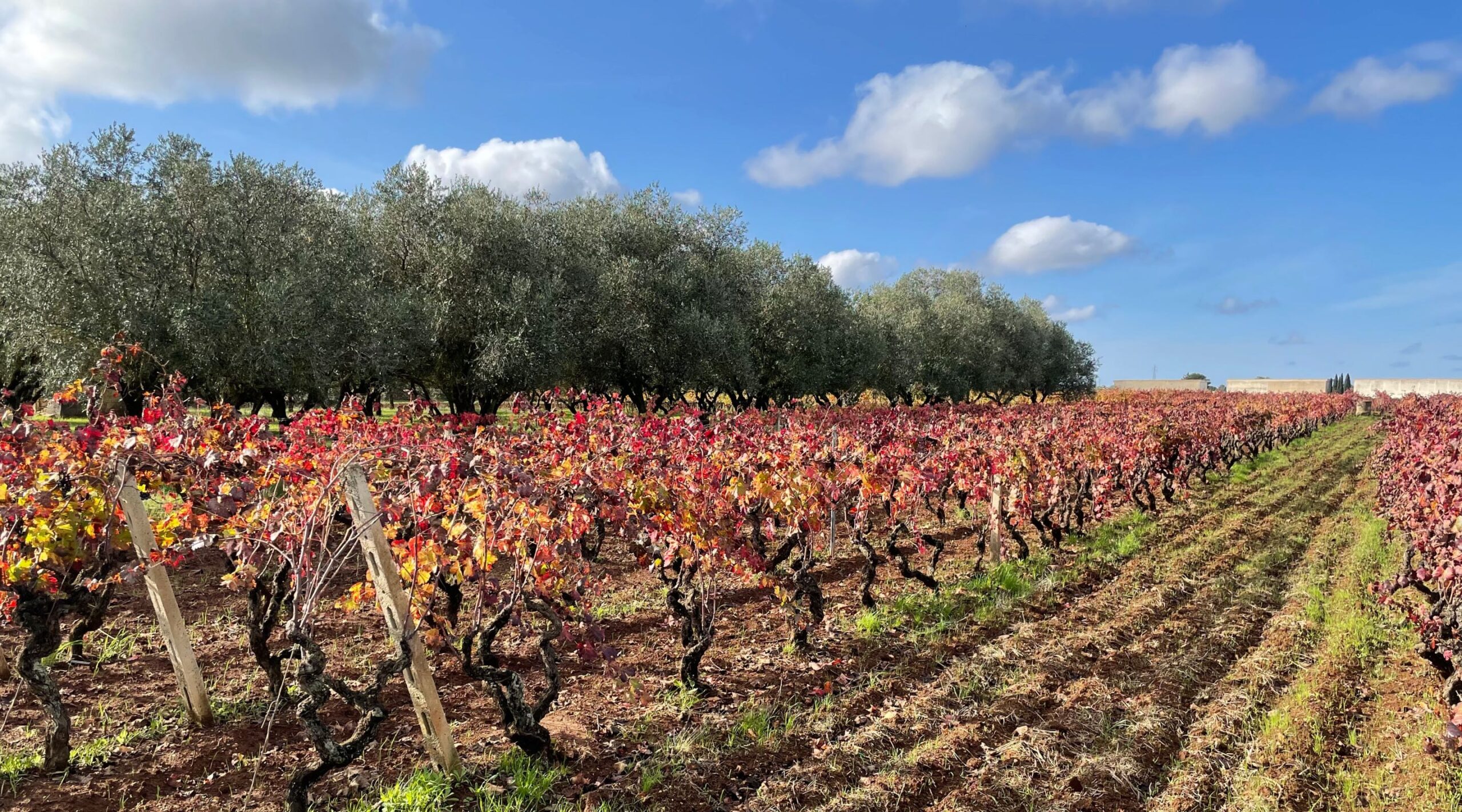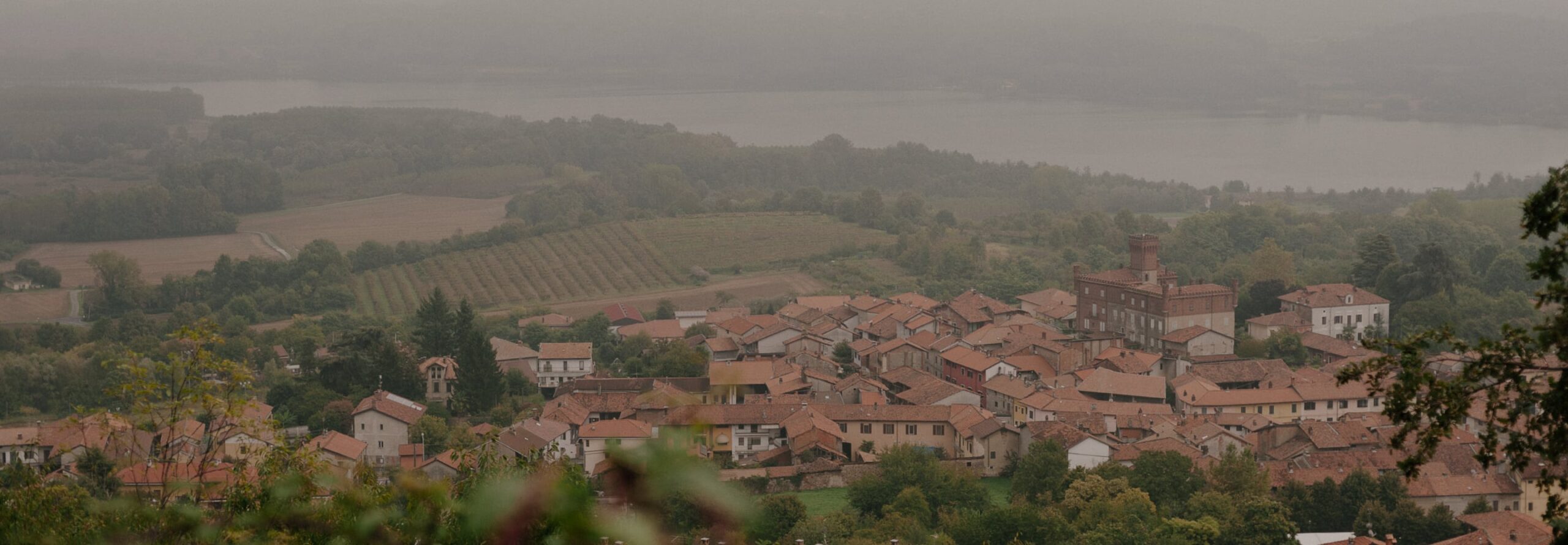As those familiar with our tastes may surmise, we at Rosenthal were not explicitly seeking out high-alcohol wine from the deep south of Italy in the recent past; nonetheless, the Attanasio family’s bold, wild Primitivo di Manduria grabbed us by the collar and all but forced us to reckon with it. Intense ripeness as a true expression of terroir is vastly different from intense ripeness as an end goal of winegrowing and winemaking, and in wines such as Attanasio’s it is simply a fact of nature—and just one part of a riveting whole.
The grandson of the winery’s founder Giuseppe (whose name still graces the labels), Alessandro Attanasio farms seven hectares of primarily bush-trained Primitivo in the province of Taranto, hard on the northern coast of the Ionian Sea in southern Puglia. He works these stingy old vines—which give him 40 hectoliters per hectare in a bountiful vintage, and 20 in a tough one—according to old agrarian practices: following the phases of the moon; employing only copper and sulfur to treat against disease; fertilizing with manure and humus; and these being bush vines, conducting all vineyard work manually and harvesting by hand. This zone’s reddish soils of silty clay over friable tufo limestone yield wines of intensely rich fruit shot through with a cleansing minerality and framed by a savory salinity that speaks of the nearby Ionian, and Alessandro harnesses these elements into Primitivo that demonstrates with authority that equilibrium can exist even in wines of extremes.


Alessandro Attanasio farms seven hectares of primarily bush-trained Primitivo in the province of Taranto, hard on the northern coast of the Ionian Sea in southern Puglia.
Farming
Practicing organic
Treatments
Copper sulfate only
Ploughing
Annual ploughing to promote vineyard health
Soils
Ferrous, silt-rich clay and volcanic tuff
Vines
Vines are head trained and average 40-50 years old
Yields
20-40 hl/ha
Harvest
Entirely manual, usually in mid-September
PURCHASING
Entirely estate fruit
Fermentation
Following total destemming, wines ferment in stainless-steel tanks.
Extraction
Wines see pumpovers during maceration
Chaptalization
None
Pressing
Pneumatic pressing
Malolactic Fermentation
Spontaneous, in stainless-steel tanks following alcoholic fermentation
Élevage
Wines age 16 months in stainless-steel tanks and 12 months in 225-l barriques (20% new). Riserva ages 12-14 months in stainless-steel tanks, 12 months in 228-l barriques, and 12-24 months in 114-l feuillettes. Dolce Naturale ages 24 months in stainless-steel tanks.
LEES
Wines are racked following malolactic and remain on
their fine lees until assemblage prior to bottling.
FINING & FILTRATION
Wines are unfined and unfiltered.
SULFUR
Applied when necessary



